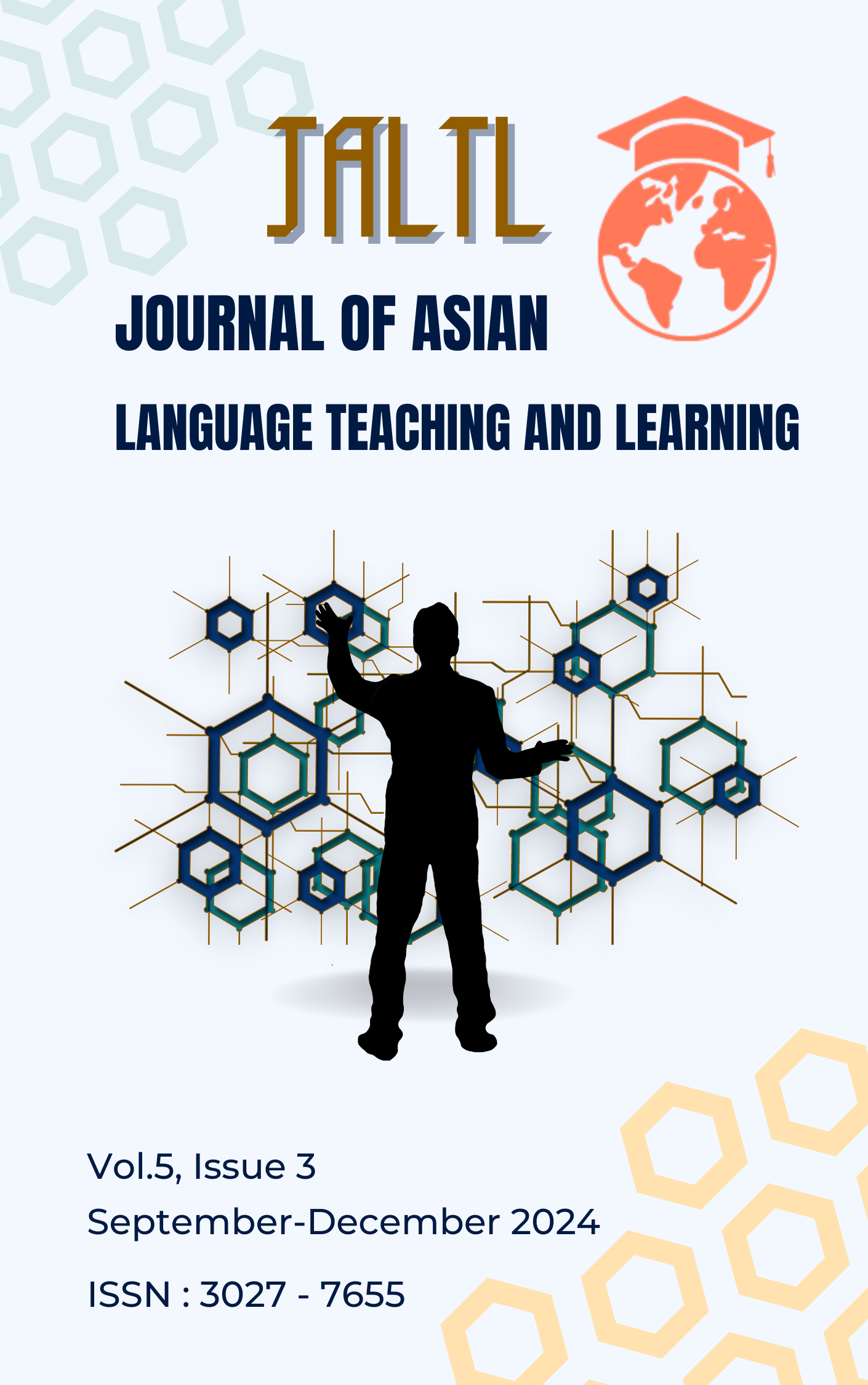Using Task-Based Learning to Enhance the English Reading Comprehension ability of Matthayomsuksa 4 Students
Main Article Content
Abstract
The purposes of this research were as follows: 1) To study and compare students’ English reading comprehension ability before and after studying English reading comprehension using task-based learning among Matthayomsuksa 4 students, and 2) To investigate student’s attitude towards teaching English reading comprehension using task-based learning among Matthayomsuksa 4 students. The sample consisted of 40 Matthayomsuksa 4 students from Bungkan School, Bungkan Province, under the Bungkan Secondary Educational Service Area Office, during the first semester of the academic year 2024. The participants were selected through cluster random sampling. This study employed a one-group pretest-posttest research design. The research instruments included 12 lesson plans, an English Reading Comprehension Ability Test, and an attitude questionnaire. The experiment lasted 12 weeks, with two hours of instruction per week, totaling 24 hours. Statistics used in the study were mean, percentage, standard deviation, one-sample t-test, and t-test for Dependent samples. The findings of the research were as follows: :1) The students’ pretest mean score on the English Reading Comprehension Ability Test was 15.58 (38.94%), while their posttest mean score was 30.95 (77.38%). The posttest mean score exceeded the set criterion of 70% and was significantly higher than the pretest mean score. 2) The students' attitudes toward teaching English reading comprehension using task-based learning were rated at a very good level.
Article Details

This work is licensed under a Creative Commons Attribution-NonCommercial-NoDerivatives 4.0 International License.
References
Anderson, N. (1999). Explore second language reading: Issue and strategies. Foreign Language Teaching and Research Press.
Brown, H.D. (2001). Teaching by Principles: An interactive approach to languagepedagogy. San Francisco: San Francisco Public University.
Bungkan. (2021). Academic Performance in the Foreign Language Learning Area English. Bungkan School, 151-154.
Carrell, P. L. (1989). Metacognitive awareness and second language reading. The Modern Language Journal, 73(2), 120-133.
Crystal, D. (2003). English as a global language. Cambridge university press.
Ellis, R. (2003). Task-based language teaching and learning. Oxford: Oxford University Press.
Eskey, D. E. (2005). Reading in a second language. In E. Hinkel (Ed.), Handbook of research in second language teaching and learning (pp. 563-580). New Jersey, NJ: Lawrence Erlbaum.
Garrett, P. (2010). Attitudes to language. Cambridge University Press.
Grabe, W. (2009). Reading in second language: Moving from theory to practice. New York: Cambridge University Press.
Graddol, D. (2006). English next (Vol. 62). London: British council.
Gunning, T. G. (2010). Reading comprehension boosters: 100 lessons for building higher-level literacy, grades 3-5. Jossey-Bass A Wiley Imprint. www.Josseybass.com
Harris, T. L., & Hodges, R. E. (1995). The literacy dictionary: The vocabulary of reading and writing. International Reading Association.
Lapp, D., & Flood, J. (1986). Types of texts: The match between what students read in basals and what they encounter in tests. Reading Research Quarterly, 284-297.
Lap, T. Q., & Trang, H. D. (2017). The effect of task-based learning on EF students’ learning reading: a case study in the Mekong Delta of Vietnam. Studies in English Language Teaching, 5(1), 34-48.
Miller, W. H. (1990). Reading comprehension activities kit. New York: The Center for Applied Research in Education.
Nunan, D. (2004). Task-based language teaching. New York: Cambridge University Press.
Oxford, R. L. (1990). Styles, strategies, and aptitude: Connections for language learning. Document Resume, 73.
Richards, J. C. (2013). Curriculum approaches in language teaching: Forward, central, and backward design. RELC Journal, 44(1), 5-33.
Rubin, D. (1997). Diagnosis and correction in reading instruction. 3rd ed. New York: Allyn and Bacon.
Ruso, N. (1999). The Influence of task-based learning on EFL classrooms. The Asia EFL Journal, 1–23.
Snow, C. (2002). Reading for understanding: Toward an R&D program in reading comprehension. Rand Corporation.
Tappan, P., & Thienperpool, P. (2018). The Development of Supplementary English Reading Comprehension Exercises by Using Task-Based Learning for Prathomsuksa Six Students(Doctoral dissertation). Silpakorn University.
Willis, J. (2021). A framework for task-based learning. Intrinsic Books Ltd.
William, E. (1994). Reading in the language classroom. 8th ed. London: Mcmillan.
Williams, J. P. (1994). Twenty years of research on reading: Answers and questions. In ELehr & J. Osborn (Eds.), Reading language, and literacy: Instruction for the twenty-first century. Hillsdale, NJ: Erlbaum.


